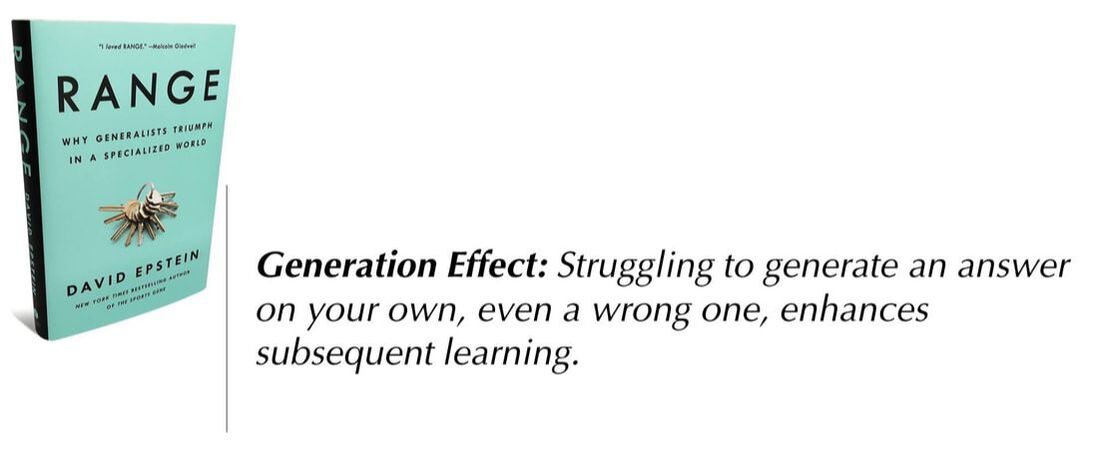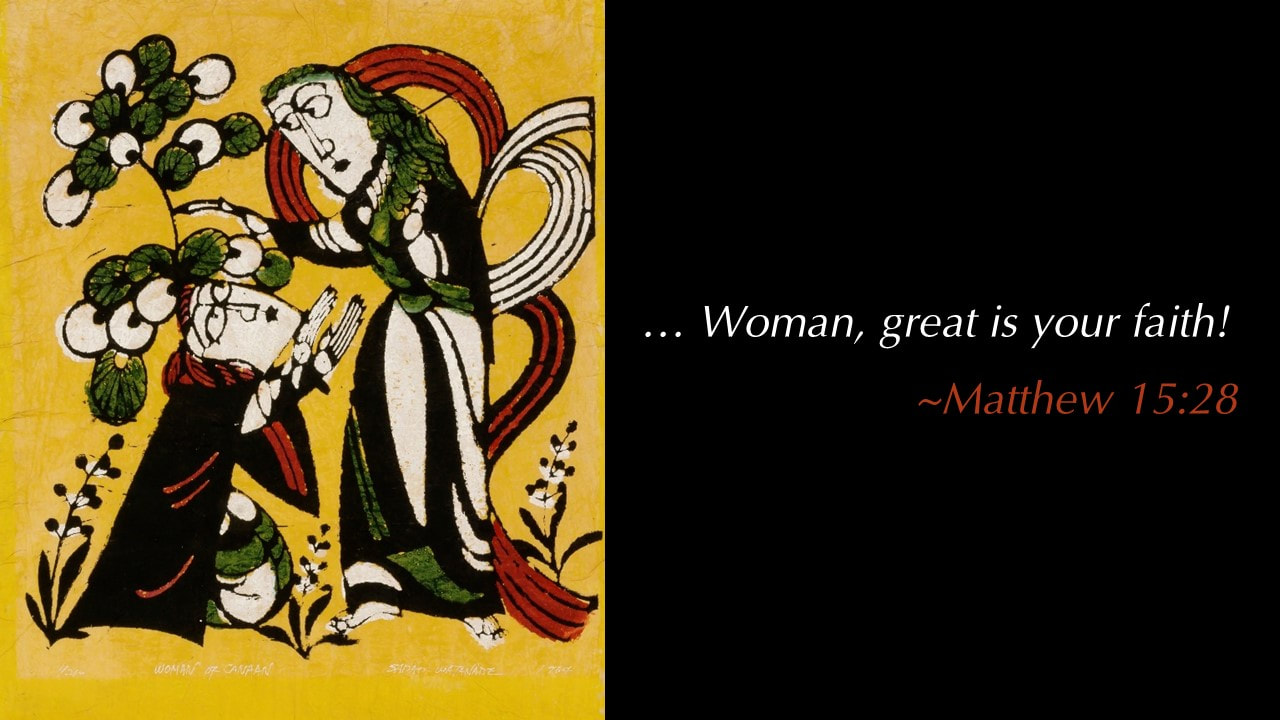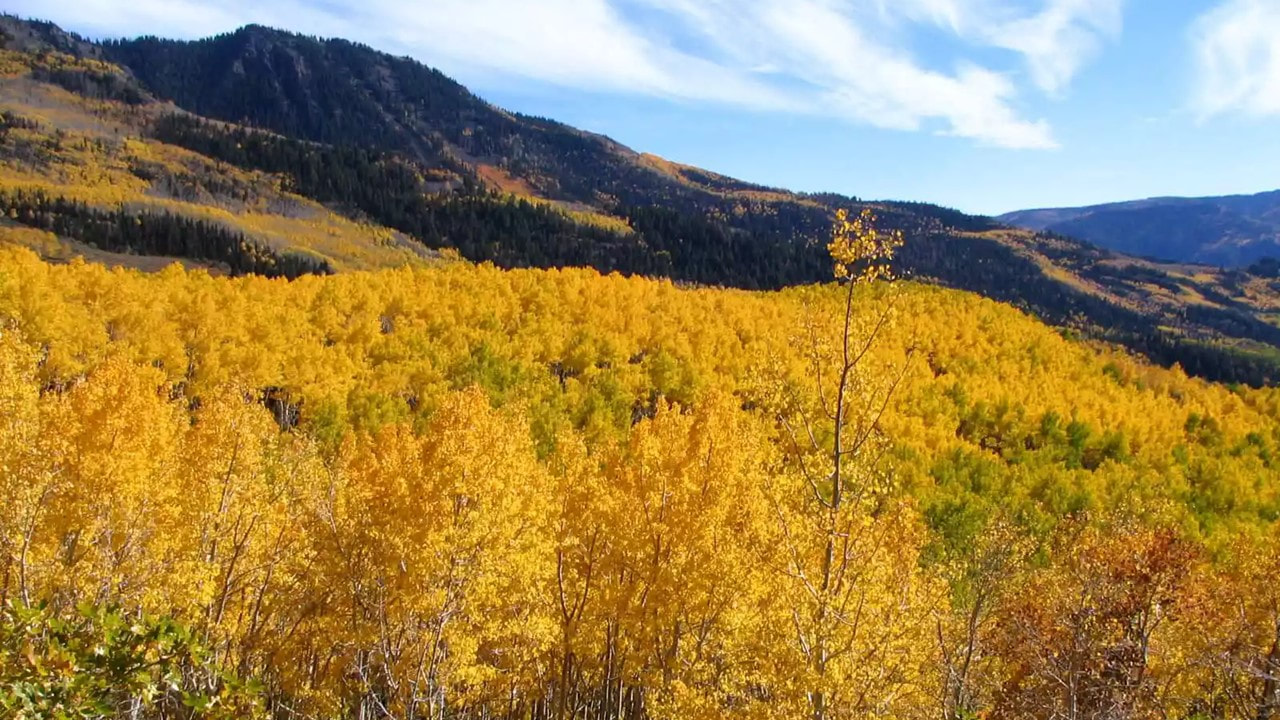Scott AndersonGenesis 9:8-17 † Psalm 25:1-10 † 1 Peter 3:18-22 † Mark 1:9-15 A video version of this sermon can be found here. Here’s a pro tip for you. When it comes to learning, repetition is less important than struggle. This is the insight of what is known as the generation effect according to David Epstein in his book Range. Struggling to generate an answer on your own, even a wrong one, enhances subsequent learning.[i] It helps learning over the long-term in at least two ways—it makes it stick and it enhances our ability to apply our learning broadly. The struggle—doing the work—is the key. Epstein explains, “for learning that is both durable (it sticks) and flexible (it can be applied broadly), fast and easy is precisely the problem.”[ii]
0 Comments
Scott AndersonIsaiah 40:21-31 † Psalm 147 † 1 Corinthians 9:16-23 † Mark 1:29-39
A video version can be found here. I need this word today. I need a reminder that this life, this faith, this God is so much bigger than I can imagine and even hope for. Over the years as I monitor the ebb and flow of my own faith, I’ve noted that moments in which it feels—to me, at least—that we are coming out of crisis into something that seems heavier with possibility, my own emotional well-being seems to move in the opposite direction. I struggle more. Doubt more. I wonder how it works for you. So I need this good word today. I need Isaiah’s rhetorical flourish: 21Have you not known? Have you not heard? Has it not been told you from the beginning? Have you not understood from the foundations of the earth? Isaiah just piles it on, inundates us with reminders of what should be obvious to any of us who have paid much attention, who have taken the time to stop and pray as Jesus does in the midst of the swirl of activity and demand. Scott AndersonIsaiah 60:1-6 † Psalm 72:1-7, 10-14 † Ephesians 3:1-12 † Matthew 2:1-12
A video version of this sermon can be found here. It’s not one of our readings for this morning, but recall, if you will, the story in the first chapter of Luke in which the angel Gabriel visits Mary. The angel greets her, calls her favored and says she will bear a son. There’s actually quite a bit of talk—typical of Luke to be sure, but it is striking how much explaining the angel needs to do about this child and his significance, about what he will do and what will be done to him, about the miracle of her relative Elizabeth also pregnant in her old age. And Mary seems to ask, well, a few questions of clarification—how can this be? Wait a minute, what?—before she affirms, “Here I am” and “let it be so.” There’s an interesting question that’s asked of this story: was Mary the chosen one, or was she just the first to say “yes”? Scott Anderson2 Samuel 7:1-11, 16 † Luke 1:46b-55 † Romans 16:25-27 † Luke 1:26-38
A video version of this sermon can be found here. Would it surprise you to know that this story from Second Samuel, this story of the victorious King David, now settled in his reign, now looking to build a permanent temple for God did not actually come together at a time when “the king was settled in his house and the LORD had given him rest from all his enemies around him”? Would it surprise you to know that it came about much later, during captivity in Babylon, when the temple that David’s son Solomon ultimately built for the LORD lay in ruins along with much of the civilization Israel had known at its peak, when the best and the brightest and the most privileged of Israel’s citizens had been forced to resettle as refugees in a foreign land? Would it surprise you to know that it came about when there was no rest, no house, and no king?[i] Perhaps it doesn’t surprise you. Perhaps it surprises you no more than knowing the story of Mary and the angel Gabriel was written down a full generation or two later, at a time when this one whose birth is foretold, this Jesus the Messiah had been executed as an enemy of the state and the church, and this miraculous child John, of the eighty-something year-old Elizabeth, had been beheaded, and when the very structure of Jewish life that serves as the backdrop to this story had been undercut, when there was once again no rest, no house, and no king. What is it about this hope of ours, that it seems to thrive when things are unfinished, that it seems to flourish most in trouble, in suffering, and in need? What is it about this mysterious faith of ours, that it is strongest, according to Romans, when revealed after long ages of being kept secret? What is it about this love of ours, that it is made perfect in weakness? Scott AndersonIsaiah 61:1-4, 8-11 † Psalm 126 † 1 Thessalonians 5:16-24 † John 1:6-8, 19-28
A video version of this sermon can be found here. Just about every Christmas season I return to W. H. Auden’s Christmas long poem “For the Time Being.” I’m not entirely sure why. It isn’t a particularly efficient or even rewarding exercise even as I am drawn to sputtering along in my reading. I do suspect it holds a certain inspiration for me, or at least the promise of it that I am at any moment apt to tap into a reserve of insight and understanding. Perhaps my motivation is wrapped up in some faulty psychology that supposes because it is thick, because it is hard work to understand that it must be worth it. I do get that possibility, so you armchair psychologists can just sit on your hands for the moment. In fact, I think it is the other side of that psychological coin that has something more to do with this strange Advent season in this extraordinary “coronatide” time. It’s the audacity of this time that captures me. It’s the foolishness of this faith that imagines we can mobilize the machinery of the hope required to cut a path through mountains and valleys to make the way straight and wide, when it all seems so, well, not that, so anything, but passable. Foolish indeed. Faith, like love, is never easy. Scott AndersonEzekiel 18:1-4, 25-32 † Psalm 25:1-9 † Philippians 2:1-13 † Matthew 21:23-32 Some of the most striking painted rock art in the world is found in the sea caves of Norway’s western coastline. They are located in wild, remote, Arctic areas where peaks plunge into the ocean, hammered by ice and wave actions over millennia. There are twelve such painted caves, containing around 170 simple stick figures, arms and legs stretched wide as if they are dancing or leaping. These are different that the far more common petroglyphs which have been carved into rock here and throughout the world by the ancients. These are paintings, made using iron oxide pigment, daubed using fingers or brushes some two to three thousand years ago by Bronze Age hunter-gatherer-fisher people who made their lives along an isolated coastline. The art that they made was preserved in remote caves in wild places. Scott AndersonEzekiel 33:7-11 † Psalm 119:33-40 † Romans 13:8-14 † Matthew 18:15-20 You can find a video copy of this sermon in the context of worship here. Daniel Kirk, has given his expertise to studying early Christianity, particularly as it is represented by the apostle Paul. Kirk attends two churches on Sundays: a traditional Reformed Church in America and a house church—well, he did before the pandemic. Kirk has shifted his definition of church from what we do to who we are together. “Church is the people I’m trying to follow Jesus with and the people who are following Jesus with me. It’s the intentional community of people who walk in self-giving love for each other while trusting themselves to the care of God.”[i] I am especially struck and convicted by that last phrase--trusting themselves to the care of God. Richard Rohr gets at this when he suggests Jesus praised faith even more than love. Now, both are pretty important, it seems. Especially in these polarized times. I remember visiting Cuba some years ago. We traveled on a religious visa with the Presbyterian church and spent much of our time with the First Presbyterian Church Havana community.
Scott AndersonIsaiah 56:1, 6-8 † Psalm 67 † Romans 11:1-5, 29-32 † Matthew 15:21-28
*A video form of this sermon can be found here or you can see the entire liturgy here. Is this boy happy? Scott Anderson1 Kings 19:9-18 † Psalm 85:8-13 † Romans 10:5-15 † Matthew 14:22-33
*A video form of this sermon can be found here or you can see the entire liturgy here. In the Fishlake National Forest, on the western edge of the Colorado Plateau there is a colony of quaking Aspen that is an estimated 80,000 years old. Now, were you walking in the midst of it right now rather than listening to me, it would not be readily apparent. There is no tree in the grove that is anywhere near that age. Cut one down and you might count 80 rings, 80 seasons of growth. Maybe more. Maybe less.[i] But underground, the eighty-year-old trunks are 80,000, a 100,000 years-old if they are a day. Some scientists think even this is a huge undercount, suggesting the forest has been around for the better part of a million years. Every tree here has sprouted from a rhizome mass too old to date even to the nearest hundred millennia, they say. Scott AndersonJeremiah 2:4-13 † Psalm 81:1, 1—16 † Hebrews 13:1-8, 15-16 † Luke 14:1, 7-14
There’s a lot of things I love about doing this work I get to do with you. But one that always tends to bubble to the top for me is the privilege you sometimes give me to hold your stories—especially the most vulnerable and fragile ones. I wonder if you feel the same way about the life you share with one another? I wonder if you experience as well the mutual gift that it is to hold something fragile for someone else. I suspect those stories that feel most delicate for us feel that way because they scrape close to some of the deeper truths of our lives—those things we just can’t let go of, nor get past, the scars of our lives, the injuries that become something more. Their memories linger. They stay with us. Hold us and haunt us, and indelibly shape us. To share in those with you is, for me, to get close to bedrock, something deep and true and stable. Although it is also, and in the same breathless moment, to brush against something wild and feather-light. Maybe it’s something like this Hebrew notion of entertaining those angels unaware—our best nature and deepest truths—without knowing it, until the moment is past and all we have is the hindsight of resurrection and righteousness. |
St. Andrew SermonsCategories
All
|







 RSS Feed
RSS Feed